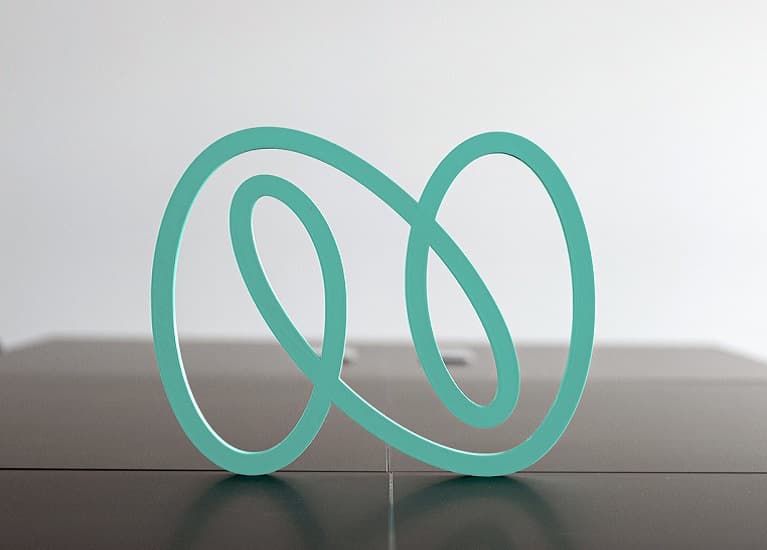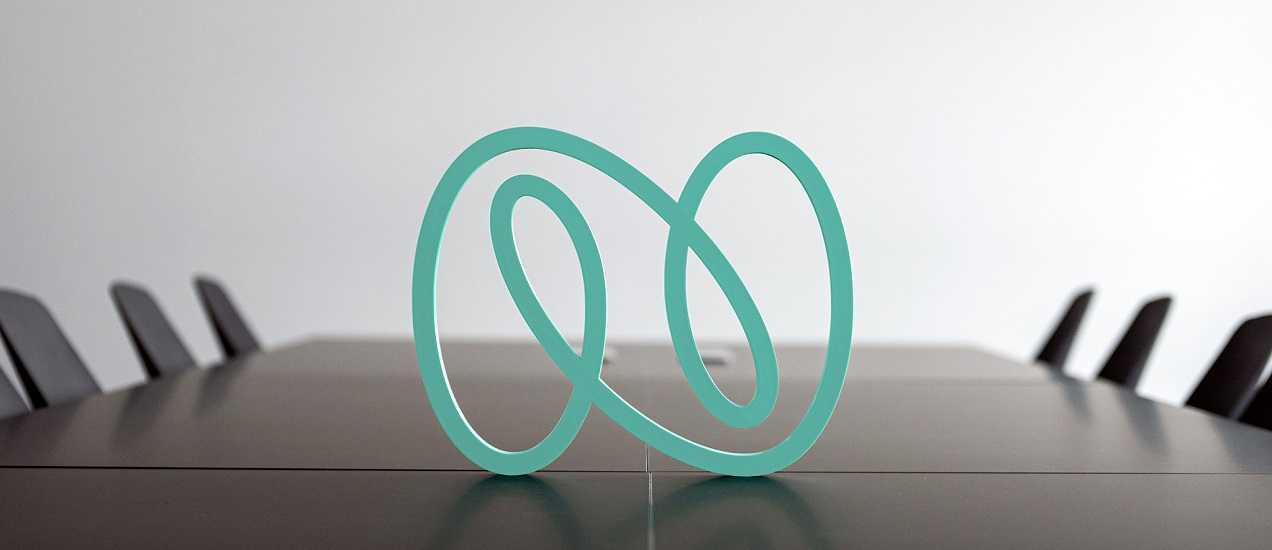Christian%20Dusek%20(1).jpg)
Thomas Riedl
 You may or may not need to be a tech-money to be interested in a revolutionary book like “The Inevitable", by Kevin Kelly. The book describes the 12 technological forces that will shape our future. Kelly, author of 11 previous books, has co-founded Wired Magazine and was the Executive Editor for the first seven years. Path-breaking technological forces and future predictions is something everyone will contemplate. But, there is something more important apart from ‘Is the author right?’ and that is, ‘What can we learn from his point of view about upcoming trends and through challenging his ideas?
You may or may not need to be a tech-money to be interested in a revolutionary book like “The Inevitable", by Kevin Kelly. The book describes the 12 technological forces that will shape our future. Kelly, author of 11 previous books, has co-founded Wired Magazine and was the Executive Editor for the first seven years. Path-breaking technological forces and future predictions is something everyone will contemplate. But, there is something more important apart from ‘Is the author right?’ and that is, ‘What can we learn from his point of view about upcoming trends and through challenging his ideas?
Here are my takeaways from the 12 technological forces that Kelly talks about.
-
Becoming
Heraclitus stated ‘everything flows’ - this applies aptly to what the future holds. Earlier, you would buy a car and use it until the end of its lifecycle. In today’s world, your Tesla will offer you a new upgrade that makes autonomous parking possible and you will want it as soon as it's available. More and more tools in our everyday life will change continuously with AI-learning, updates, etc. Change on all levels, probably on a daily basis, will become an integral part of our lives, and we will learn to enjoy it.
-
Cognifying
Google is already planning free AI-services similar to the free search services. Every person and every machine will have access to powerful AIs to cognify their lives. For example, cognified music (depending on your mood and wishes, the AI will quickly be able to compose the perfect music for you), cognified research (a machine could develop quantum and string theories, then afterwards test its own hypothesis), and cognified cars (a development that seems near at hand, considering the current self-driving-car-tests).
-
Flowing
The internet is the world’s largest copy machine. Copies of products (books, songs, code, etc.) are already flowing through the internet. There are four stages of Flowing:
- Fixed. Rare. is the first phase is based on worthy products that are sold for a price that can be produced in high-quality to compensate the creators.
- Free. Ubiquitous. is the first disruption, promiscuous copying of the product leading to cheap or even free copies available nearly everywhere. Normally this phase challenges the involved industries (e.g. the music industry).
- Flowing. Sharing. The second disruption is an unbundling of the product into parts, each element flowing to find its own new uses and to be remixed into new bundles. The product is now a stream of services issuing from the shared cloud. It becomes a platform for innovation.
- Opening. Becoming. The third disruption is enabled by the previous two. Streams of powerful services and ready pieces, conveniently grabbed at little cost, enable amateurs with little expertise to create new products and brand-new categories of products. The status of creation is inverted, thus the audience becomes the creator. Output, selection, and quality skyrockets.
-
Screening
In the near future, we will always be near a screen. The mirror in your bathroom will be a screen that measures your heartbeat, analyzes the color of your skin to suggest supplements, and gives exercise and nutrition advice every day. The cupboards in your kitchen will consist of screens to inform you about the weather, news, your schedule for the day, and the best route to the office. The refrigerator screen will tell you what to buy and that your wife left a snack for you. The screen on the cereal box will inform you about the health benefits of eating this product. Finally, while lying in bed you can view the beach photos from your last vacation on the screen of the ceiling.
-
Accessing
Access, rather than ownership, will become the main way to use products and services. Currently, there are Access/Subscription Start Ups for nearly every product/service you can imagine. To give you an example of the sheer amount of possibilities, let´s look at vehicles:
- Buy a car, and drive yourself (the default today)
- Hire a company to drive you to your destination (taxi)
- Rent a company-owned car, drive yourself (Hertz rental)
- Hire a peer to drive you to your destination (Uber)
- Rent a car from a peer, drive yourself (RelayRides)
- Hire a company to drive you with shared passengers along a fixed route (bus)
- Hire a peer to drive you with shared passengers to your destination (Lyft Line)
- Hire a peer to drive you with shared passengers going to a fixed destination (BlaBlaCar) and many others to come.
Access versus Ownership is not only cheaper and better quality (always the last generation of car) but will also offer new comfort options. Think, for example about a self-driving car that knows your Outlook calendar and is always waiting for you in the right place. Of course, you are only paying for services that you choose.
-
Sharing
We are already talking about a sharing culture or sharing society. Examples like Facebook, Twitter, Wikipedia and Kickstarter are clearing the path for the sharing future. There are experiments for each of the four steps:
- Sharing
- Cooperation
- Collaboration
- Collectivism
According to Black Duck Open Hub, there are approximately 650.000 people involved in more than 500.000 projects in the open-source community. But open source software is just the first step, there are community-built cars, computers and much more to come.
-
Filtering
Every year, eight million new songs, two million new books, 16.000 new films, 30 billion blog posts, 182 billion tweets are produced. Just the data of the last 12 months would be a complete and utter information overload. What was and is the solution? Filtering. We filter nearly everything. We have to, otherwise there is no chance to decide which piece of information is worth our time and dedication. Today, most of these filters are either unconscious or playing just a supporting role. In the future, filters will be one of the main actors. Your avatar will no longer be limited to only knowing which books, songs and tweets to suggest or which Amazon products you find interesting. These filters will be so intelligent that they will also know your likes and dislikes (e.g. opera music or books from Kant). They will also predict the degree to which you are interested in new experiences. One simply cannot overstate the dramatic effect a filter and the specific filtering-strategies have on our lives.
-
Remixing
Most innovations are combination of existing technologies, and the larger the basis of available technologies, the easier it will be to identify new permutations and if these are useful and innovative. Remixing as foundation for new products, services and genres will gain width, depth, and tempo.
-
Interacting
If you look at the technical possibilities available today, you will get a sense of the opportunities of tomorrow. Virtual Reality, Assisted and Augmented Reality are already here. The last Samsung smartphone had an Iris scanner, and voice recognition is becoming standard technology. The ways to interact with our environment (and not just machines) will dramatically expand in three areas:
- Senses: Visual sensors (Eyes for everything) are a no brainer. Also included are hearing, sense of smell, GPS, heat detection, X-ray detection, sensors for specific molecules, and more.
- Intimacy: The Zone of Interaction will continue to march closer to us. Technology will get closer to us than a watch and a pocket phone. Interacting will become more intimate. It will always be on…everywhere.
- Immersion: We will interact with others in new ways (Virtual Reality) or interact with the physical world in a new way (Augmented Reality). Technology will become a second skin.
-
Tracking
What began with the “quantified self” movement will become the default behavior. With added technological options the “geeky” of today will become the “normal” of tomorrow. Stephen Wolfram, the genius behind Mathematica, logged every keystroke, every email, his steps, his location, office hours and a variety of other variables for 13 years. He turned his self-tracking-data into his personal analytics engine. One of the results, among many others, was a record of his most productive hours. He identified what time would be the most ideal for him to write and when to edit a book. An example of questions you otherwise don’t have the answer to. If the intelligent thermostat of 2020 asks you, “Sir, what would be your preferred room temperature?” – None of us really would know what the optimal temperature should be. However, your personal analytics engine will have the answer through measuring the weather conditions, your body temperature, blood pressure, heart-rate, time of day, clothing, and sweat level.
-
Questioning
Who would have believed that the largest and most read encyclopedia in the world is for free and written by the public? Who would have believed that there would be a “search business” worth 82 billion dollars that provides free answers to all of your questions, or that the largest hotel company in the world won´t own a single hotel? We will live in a world of seemingly unlimited opportunities and free, ubiquitous answers. In the US alone, there are over 100 billion searches for answers per year. Therefore, the successful people and companies with good questions will have little doubt about what seems unimaginable for everybody else.
-
Beginning
I am leaving this question open for everyone who decides to read the book or meet me in person.
I am sure that Nagarro and the Nagarroite-Community will be an important part of and contributor to these amazing times to come.




